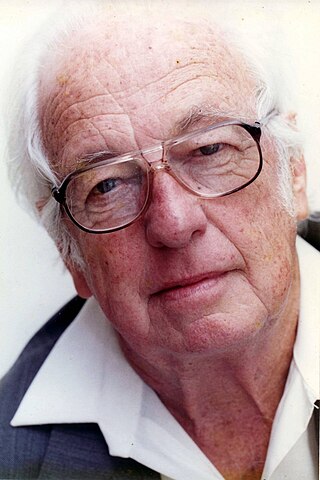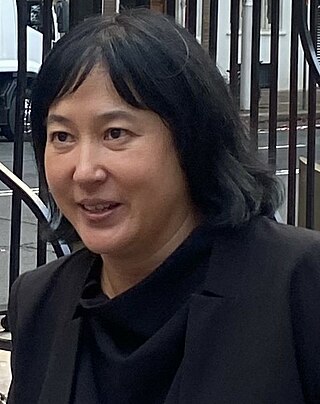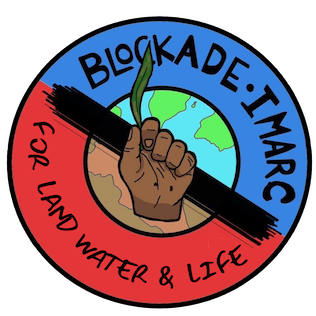Related Research Articles

Robert Bruce McClelland is an Australian judge and former politician who has served on the Federal Circuit and Family Court of Australia since 2015, including as Deputy Chief Justice of that court since 2018. He was previously Attorney-General of Australia from 2007 to 2011, and a member of the House of Representatives from 1996 to 2013, representing the Labor Party.
Abortion in Australia is legal. There are no federal abortion laws, and full decriminalisation of the procedure has been enacted in all jurisdictions. Access to abortion varies between the states and territories: Surgical abortions are readily available on request within the first 22 to 24 weeks of pregnancy in most jurisdictions, and up to 16 weeks in Tasmania. Later-term abortions can be obtained with the approval of two doctors, although the Australian Capital Territory only requires a single physician's approval.
Three anti-terrorism bills were enacted in the Australian Parliament in 2004 by the Howard Coalition government with the support of the Labor Opposition. These were the Anti-terrorism Bill 2004, the Anti-terrorism Bill 2004 and the Anti-terrorism Bill 2004.

Suicide is a crime in some parts of the world. However, while suicide has been decriminalized in many countries, the act is almost universally stigmatized and discouraged. In some contexts, suicide could be utilized as an extreme expression of liberty, as is exemplified by its usage as an expression of devout dissent towards perceived tyranny or injustice which occurred occasionally in cultures such as ancient Rome, medieval Japan, or today's Tibet Autonomous Region.

Lee Rhiannon is a former Australian politician who was a Senator for New South Wales between July 2011 and August 2018. She was elected at the 2010 federal election, representing the Australian Greens. Prior to her election to the Federal Parliament, Rhiannon was a Greens NSW member of the New South Wales Legislative Council between 1999 and 2010.
Gregory John Donnelly is an Australian politician, a member of the New South Wales Legislative Council since 2005, representing the Labor Party.

Lesbian, gay, bisexual, and transgender (LGBT) rights in Australia rank among the highest in the world; having significantly advanced over the latter half of the 20th century and early 21st century. Opinion polls and the Australian Marriage Law Postal Survey indicate widespread popular support for same-sex marriage within the nation. A 2013 Pew Research poll found that 79% of Australians agreed that homosexuality should be accepted by society, making it the fifth-most supportive country surveyed in the world. With its long history of LGBT activism and annual Gay and Lesbian Mardi Gras festival, Sydney has been named one of the most gay-friendly cities in the world.

Rose Butler Jackson is an Australian Labor Party politician serving as a Member of the New South Wales Legislative Council since 8 May 2019. Since 5 April 2023, she has been serving in the Minns ministry as Minister for Water, Minister for Housing, Minister for Homelessness, Minister for Mental Health, Minister for Youth, and Minister for the North Coast. She is the former Assistant General Secretary of NSW Labor.
Governments sometimes take measures designed to afford legal protection of access to abortion. Such legislation often seeks to guard facilities which provide induced abortion against obstruction, vandalism, picketing, and other actions, or to protect patients and employees of such facilities from threats and harassment.

Wilfred George Petersen was an Australian politician, affiliated with the Labor Party and elected as a member of the New South Wales Legislative Assembly.

Founded in 1963, the charter of the NSW Council for Civil Liberties is to protect the rights and liberties of Australian citizens and to oppose the abusive or excessive exercise of power by the state against its people.

Lesbian, gay, bisexual, and transgender (LGBT) rights in Queensland have advanced significantly from the late 20th century onwards, in line with progress on LGBT rights in Australia nationally. Private consensual sex between men has been legal in the state since 1991, with lesbian sexual acts never criminalised. The age of consent was equalised to 16 years for all sexual acts in 2016. Sexuality and gender identity are protected attributes under both state and federal anti-discrimination laws. Same-sex couples may marry under Australian law, enter into a civil partnership under state law or live together in an unregistered de facto relationship. Same-sex couples may become parents through adoption, foster care, altruistic surrogacy and, for lesbian couples, IVF. In 2020, Queensland became the first jurisdiction within Australia to pass a law banning conversion therapy, with a maximum penalty of 18 months imprisonment and fines. State anti-discrimination protections for sexuality and gender identity were introduced in 2002 and in 2017 the gay panic defence was abolished from the criminal law. Transgender and intersex Queenslanders are able to update their government records and birth certificate, with the formal repeal of both the "divorce requirements" in 2018 and then the "surgery requirements" in 2023.
The hate speech laws in Australia give redress to someone who is the victim of discrimination, vilification or injury on grounds that differ from one jurisdiction to another. All Australian jurisdictions give redress when a person is victimised on account of skin colour, ethnicity, national origin or race. Some jurisdictions also give redress when a person is victimised on account of religion, disability, gender identity, HIV/AIDS status or sexual orientation.

Lesbian, gay, bisexual, and transgender (LGBT) people in the Australian state of New South Wales have most of the same rights and responsibilities as non-LGBT people.

Jenny Leong, an Australian politician, is a member of the New South Wales Legislative Assembly representing Newtown for the Greens since 2015. Leong is the first person to represent Newtown in its current form, as it was created for the 2015 election.

Brown v Tasmania, was a significant Australian court case, decided in the High Court of Australia on 18 October 2017. The case was an important decision about the implied freedom of political communication in the Australian Constitution in which the majority held that provisions of the Tasmanian Protesters Act were invalid as a burden on the implied freedom of political communication in a way that was not reasonably appropriate and adapted, or proportionate, to the legitimate purpose of protecting businesses and their operations.

Anthony Gerard Damien D'Adam is an Australian politician. He has been a member of the New South Wales Legislative Council since 2019, representing the Australian Labor Party.

Blockade IMARC refers to a protest against meetings of the International Mining and Resources Conference (IMARC) on the 29, 30 and 31 of October 2019 in Melbourne, Australia. The Blockade IMARC Alliance also refers to a protest movement which has the same goals of opposing IMARC.
Blockade Australia is a direct action group in Australia who blockade rail and roads in ports to "force the urgent broad-scale change necessary for survival". They describe themselves as "committed to taking the action necessary to disrupt economic bottlenecks of Australia and stop the exploitative colonial project".

The 47th Parliament of Australia is the current meeting of the legislative body of the Commonwealth of Australia, composed of the Australian Senate and the Australian House of Representatives. The May 2022 federal election gave the Australian Labor Party control of the House. Labor won 77 seats at the election, and it gained an additional seat in April 2023 due to winning the Aston by-election, giving it a three-seat majority government. Labor leader Anthony Albanese became the 31st Prime Minister of Australia, and was sworn in by the Governor-General David Hurley on 23 May 2022. The 47th Parliament opened in Canberra on 26 July 2022.
References
- ↑ "NSW passes law to stop traffic blockades". 7NEWS. 2022-04-01. Retrieved 2022-04-09.
- 1 2 "NSW government urged to halt new bill targeting road-blocking protesters". the Guardian. 2022-03-30. Retrieved 2022-04-09.
- ↑ "Blockade Australia Activist sentenced to 12 months in prison for Newcastle Coal Port Actions | Extinction Rebellion". Extinction Rebellion Australia. Retrieved 2022-04-09.
- ↑ "Greens launch filibuster attempt to stop NSW bill targeting road-blocking protesters". the Guardian. 2022-03-31. Retrieved 2022-04-09.
- ↑ "NSW Government passes 'anti-protest' bill with bipartisan support". Honi Soit. 2022-03-31. Retrieved 2022-04-09.
- 1 2 Parliament of NSW (2022-04-01). "Text of the Roads and Crimes Legislation Amendment Bill 2022- Passed by both Houses" (PDF). Retrieved 2022-04-09.
- 1 2 "NSW protest bill leaves Labor wedged between a roadblock and a hard place". the Guardian. 2022-04-01. Retrieved 2022-04-09.
- ↑ "industrial roads and crimes amendment minns - Google Search". www.google.com. Retrieved 2022-04-09.
- 1 2 Miranda G (2022-03-31). "Open Letter against anti-protest laws". CounterAct. Retrieved 2022-04-09.
- ↑ "Crushing dissent: Greens MP says NSW Labor has abandoned its base". 13 July 2022. Retrieved 28 July 2022.
- ↑ "Perrottet government must stop pursuit of draconian anti-protest law". Human Rights Law Centre. Retrieved 2022-04-09.
- ↑ Jackson, Rose (2022-03-31). "ROADS AND CRIMES LEGISLATION AMENDMENT BILL 2022 - Second Reading Debate". NSW Parliament Hansard. Retrieved 2022-04-09.
- ↑ Graham, John (2022-03-31). "Disallowance Motion Debate - ROADS AMENDMENT (MAJOR BRIDGES AND TUNNELS) REGULATION 2022". NSW Parliament Hansard. Retrieved 2022-04-09.
- ↑ Minns, Chris (2022-04-01). "Transcript of Doorstop Interview". Oz Arab Media. Retrieved 2022-04-09.
- ↑ Chung, Laura (2022-03-24). "Activists slam new anti-protest laws as 'knee-jerk' after three days of protests". The Sydney Morning Herald. Retrieved 2022-04-09.
- 1 2 "NSW Labor MPs uneasy about party's support for bill aimed at road-blocking protests". the Guardian. 2022-04-01. Retrieved 2022-04-09.
- ↑ D'Adam, Anthony (31 March 2022). "Disallowance Debate - ROAD AMENDMENT (MAJOR BRIDGES AND TUNNELS) REGULATION 2022". NSW Parliament Hansard. Retrieved 2022-04-09.
- ↑ "ROADS AND CRIMES LEGISLATION AMENDMENT BILL 2022". www.parliament.nsw.gov.au. Retrieved 2022-04-09.
- ↑ "Locking Out the Left: The Emergence of National Factions in Australian Labor". jacobinmag.com. Retrieved 2022-04-09.
- ↑ corporateName=Commonwealth Parliament; address=Parliament House, Canberra. "Free Votes in Australian and some Overseas Parliaments". www.aph.gov.au. Retrieved 2022-04-09.
{{cite web}}: CS1 maint: multiple names: authors list (link)